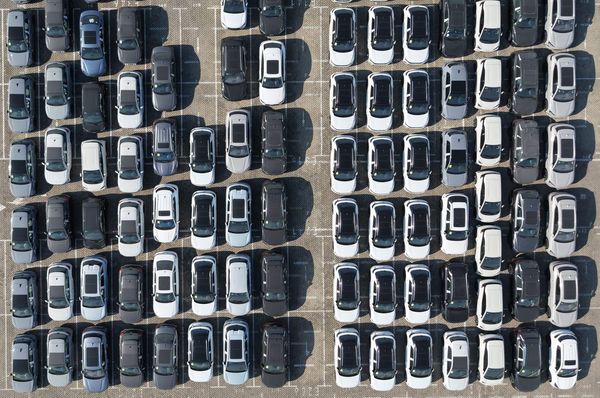
President Emmanuel Macron faced Marine Le Pen, his far-right challenger, in a televised debate on Wednesday ahead of Sunday’s crucial runoff vote. The media agreed that Macron had largely dominated the exchanges. Viewers interviewed by pollsters agreed that Macron had been more convincing, more dynamic and more sincere.
Yet following the debate, Libération declared on its front page that Le Pen was “still not up to par”. This was an astonishing headline on the part of a centre-left newspaper. Does it mean that had Le Pen had better oratory skills and a better grasp of policy details, she would be worthy of becoming president? Meanwhile, most of the commentary about the debate failed to point out that Le Pen is a far-right candidate who has extreme views on immigration, Islam, civil liberties, the EU and Putin’s Russia. This shows that the normalisation of Le Pen’s far right movement is at an advanced stage.
While debating with Le Pen, Macron further “de-demonised” the Rassemblement National’s leader by focusing on policy details. During the three-hour debate, Macron sounded nerdy and technocratic. He endeavoured to demonstrate to French voters that he has the best policies.
Not once did the incumbent label his opponent a “far-right” politician; nor did he mention that some of her policies were a threat to democracy; nor did he stress that should Le Pen be elected president, France’s standing in the world would be tarnished. Yet her programme attacks major civil liberties: she vows to ban the hijab in public spaces, to curb asylum-seekers’ rights, to end the granting of French nationality to youngsters born in France from foreign parents, and to discriminate against foreigners by allocating welfare provisions to French nationals only.
Macron’s performance lacked vision and a sense of historic momentum. During the debate, his task was to emotionally engage with reluctant voters – notably left-leaning voters. By adopting a technocratic and professorial rhetoric, Macron depoliticised the debate. He sounded competent but also lacking in empathy; meanwhile, Le Pen came across as much more empathetic, despite her hardline views.
This is the heart of the problem. Macron’s critics argue that his policy shift to the right and his aloof, Jupiterian style of government are partly to blame for the rise of the far right. He has given free rein to members of the government who have used far-right rhetoric, and he has supported the adoption of repressive policies on Islam, immigration and law and order.
According to the latest polls, Macron is on course to get re-elected with a much-reduced majority. He cannot afford to be complacent, yet he seems oblivious to the danger he is in. To win, he must secure the support of a large chunk of the 7.7 million who voted for the radical left candidate Jean-Luc Mélenchon. Most of those voters detest Macron’s policies and most of them abhor his persona. The latest figures show that 42% may vote for him, but 25% may choose Le Pen and 33% may abstain. In the words of some Mélenchon voters, it is a case of “choosing between plague and cholera”.
Macron’s staggering realignment of party politics has led to the demise of the two dominant parties of French politics: the centre-left Parti Socialiste and the centre-right Républicains. Three blocs have now emerged: a liberal-conservative one around Macron, a far-right one led by Le Pen, and a divided and weakened left led by Mélenchon. The France Insoumise leader has radicalised a fraction of the leftwing electorate. For some Mélenchonistes, Macron is as dangerous as, if not more dangerous than, Le Pen. In some quarters of the radical Left, Macron was branded a “dictator” for implementing an immunity pass during the pandemic. This sort of political confusion is a recipe for disaster at the ballot box.
On social media, there is currently a lot of soul-searching: should one abstain or vote against Le Pen? It appears that an increasing number of leftwing voters will pinch their nose and vote for Macron on Sunday, notably those who would have a lot to lose from a Le Pen presidency: the young, the racialised and the impoverished middle classes, the core of Mélenchon’s electorate.
This reluctant push may be enough for Macron to get over the finishing line, but a political system that blackmails a majority of its citizens to vote against their interests is brutal and unhealthy. Once re-elected, Macron should expect a backlash.
Philippe Marlière is professor of French and European politics at University College London







